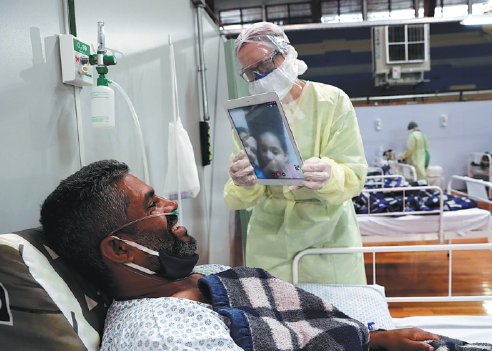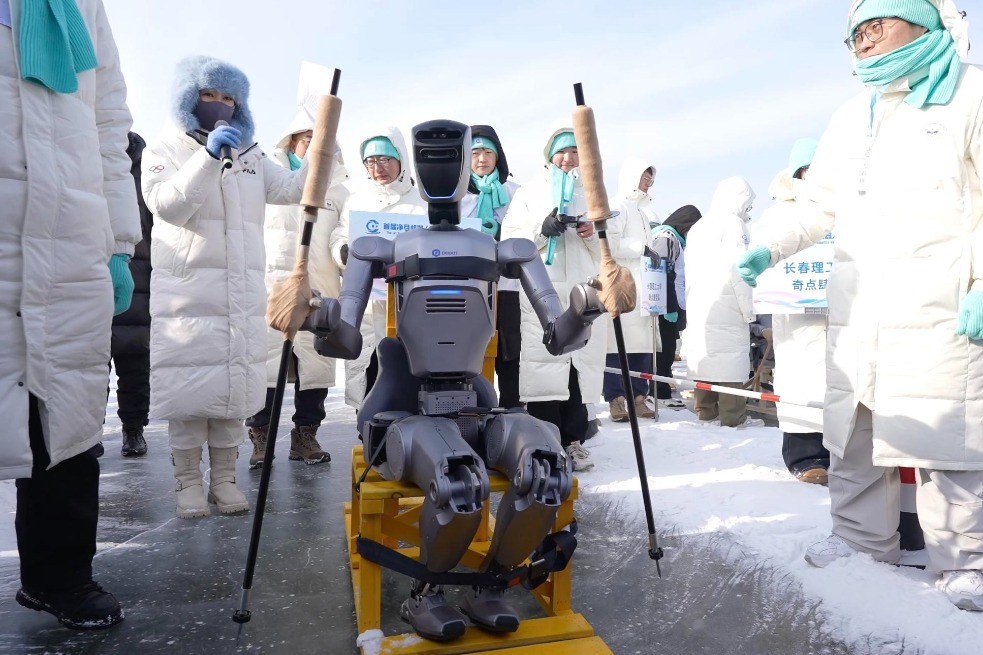Virus in White House sees Trump tested more
After valet gets COVID-19, checks go daily as US digests jobless claims of 33m

A member of the US military serving as one of President Donald Trump's valets has tested positive for the coronavirus, but Trump and Vice-President Mike Pence have since tested negative for the virus and "remain in good health", the White House said on Thursday.
"I've had very little contact with this person," Trump told reporters on Thursday afternoon, adding that the frequency of testing in the White House would increase to once a day from once a week.
It marked the latest coronavirus scare for the president, and the first known instance where a person who has come in close proximity to him has tested positive since several people present at his private Florida club were diagnosed with COVID-19 in early March. The person tested positive on Wednesday, the White House said.
According to Johns Hopkins University, the country-hardest hit by the pandemic-had confirmed 1,256,972 cases by 5 am GMT.
Globally, there have been 3,726,292 confirmed cases as of Friday afternoon, including 257,405 deaths, according to the World Health Organization.
New data showed that more than 33 million people in the US have filed for jobless claims as the virus continues to ravage the economy, indicating the scope of damage to the labor market, while suggesting the historic wave of layoffs seems to be receding.
In the week ending on May 2, the number of US citizens filing for unemployment benefits decreased by 677,000 from the prior week to 3,169,000, the fifth weekly decline in a row, the US Bureau of Labor Statistics said on Thursday.
The breadth of job losses is "stunning", Diane Swonk, chief economist at Grant Thornton, a major accounting firm, wrote in a recent blog. "They spanned virtually every industry and income category," she said.
Further measures
Trump said on Thursday his administration was considering further economic measures, possibly via executive orders, to provide help against the economic fallout from the pandemic.
The Trump administration is also pushing for a nationwide economic reopening despite concerns voiced by public health experts and local officials. The White House said it is seeking revisions to a document drafted by the Centers for Disease Control and Prevention that gives detailed advice to local leaders on reopenings.
Two US states, Michigan and California, which have some of the most restrictive stay-at-home orders to stop the spread of the novel coronavirus, started to ease them on Thursday.
Michigan Governor Gretchen Whitmer said that manufacturing-including auto plants-can resume production on Monday.
Many plants have already said they plan to restart production on May 18. But auto parts suppliers and tool and die shops, which said they needed to get moving ahead of the auto plants, can resume work as soon as Monday.
California Governor Gavin Newsom outlined the first widespread changes to a stay-at-home order that shut most retail shops in his state. Beginning on Friday, retailers such as clothing stores, bookshops, florists and sporting goods stores were allowed to reopen for curbside pickup. The order won't include other close-contact businesses such as dine-in restaurants and hair salons.
Brazil, the epicenter of the coronavirus pandemic in Latin America, on Thursday registered 9,888 new confirmed cases and 610 related deaths from the previous day, bringing the total number of cases and deaths, respectively, to 135,106 and 9,146, according to Brazil's Health Ministry.
Brazil could face "economic collapse" in a month due to stay-at-home measures to stem the virus outbreak, with food shortages and "social disorder", Economy Minister Paulo Guedes warned on Thursday.
Also on Thursday, the United Nations called on governments, companies and billionaires to contribute to a $6.7 billion fund for immediate needs in fighting the pandemic in vulnerable countries, warning that a failure to help could lead to a "hunger pandemic", famine, riots and more conflict.
Ai Heping in New York, Xinhua and agencies contributed to this story.

Today's Top News
- PBOC cuts rates on targeted monetary tools
- Legal tools essential for AI regulation
- China calls for dialogue on Iran situation
- Denmark rebuts Trump's Greenland security claims
- China, Canada vow to enhance bilateral ties
- Xi's speech at Central Urban Work Conference to be published






























